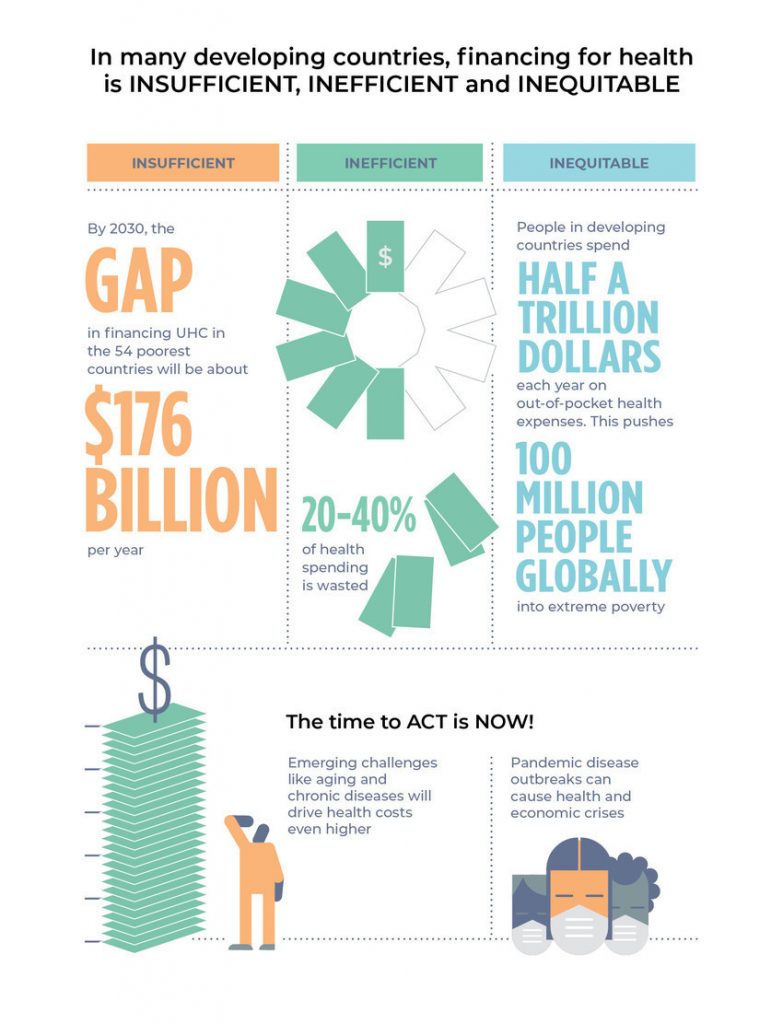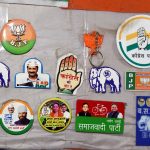By Dr. Gyan Pathak
Universal health coverage (UHC) by 2022 has miserably failed in India. The year that is closing to an end, rather brought a costlier healthcare with price hike of even essential medicines, equipment and services. Deterioration of public healthcare system continued, and the country moved further toward privatization of district hospitals. Public health suffered in between unaffordable cost of private hospitals and increased difficulties in getting quality healthcare in public health facilities.
Though UHC has been identified by UN as the key obligation for all countries, and a High Level Expert Group (HLEG) in the Planning Commission of India had envisaged in 2011 a UHC for all in India by 2022, we see now in the end of 2022 that it remains a dream. PM Narendra Modi, when came to power in 2014, dismantled the Planning commission for a new think tank of his choice called NITI Aayog. This new think tank has no priority for UHC, rather it is pushing to strengthen private sector in health sector.
The year that we are leaving behind seen a poignant state of affairs under PM Modi. The Centre has been trying to sell district hospitals to private companies, and five states either governed or supported by the BJP have already started the process by October 2022. Those states were Uttar Pradesh, Maharashtra, Karnataka, Gujarat and Meghalaya. It means, with PM Modi’s penchant for privatization, India might be moving towards bigger privatization of public healthcare system of the country.
The idea of privatization of district hospitals was officially mooted by fist by the NITI Aayog, Modi’s think tank, in January 2020. The Centre has been urging the states to adopt the idea of selling district hospitals to private companies since the middle of the pandemic in 2021, when people were dying even without access to hospitals and healthcare system in any of the public and private health facilities.
Modi government has been running a propaganda that the district hospitals handed over to private healthcare companies would also run medical colleges attached to the sold hospitals on a public-private-partnership (PPP) mode. A report on medical education in India has said that apart from the five states mentioned previously states across India are actively pursuing the PPP mode to bridge the financing gap for setting up medical colleges.
Thus, the year 2022 has seen how Modi government has been more than willing to shed its responsibility of increasing public investment in public healthcare system of the country. The year ahead in 2023 seems to be all set for bigger privatization moves of public health facilities.
In March 2022, the National Pharmaceutical Pricing Authority announce their decision to allow price rise of essential medicines by 10.77 per cent. It should be noted that the average hike in the last eight years, which correspond to the eight years of Modi rule, was only 2.5 per cent, and which was much more than 1.97 per cent in 2017, 3.43 per cent in 2018, 4.26 per cent in 2019, and 1.88 per cent in 2020. The ceiling prices of over 850 scheduled drugs were revised on April 1, and the cost of medicines, both essential and non-essential drugs were suddenly jumped to unaffordably high for common people. After this decision, several medicines were being sold in the black market.
After the price hike the Union Minister of Health Mansukh Mandaviya was heard even lying when is said, “These are the drugs that are priced a few rupees and therefore, a 10 per cent WPI increase may lead to the price rising by a few paise.” Factual position in the drug market was, since April 1 for 872 drugs in the list, that costs ranged from a few rupees for a tablet, capsule, ml or a pack to hundreds or thousands of rupees, several of them from Rs 1000 to little over Rs 44,000.
Drug prices gone up 15 to 130 per cent for essential drugs, and for many non-essential drugs costs were beyond 130 per cent. Right from the beginning of 2022, pharmaceutical companies are increasing prices of drugs, which had already gone up by 15-20 per cent in the last few years.
The two years of pandemic has shown how India’s healthcare system was unprepared due to which the country suffered unprecedented loss of lives and livelihoods. However, Modi government provided a budget of only Rs 86,200.65 crore in the Union Budget 2022-23, much less than the country required. Budget allocation was 16 per cent more than the previous year, but it was a matter of great concern that the spending on ‘medical and public health’ was reduced from Rs74,820 crore in 2021-22 to Rs41,011 crore in 2022-23. Government explanation for the reduction of Rs33,809 crore was “lower requirement of vaccination” against COVID-19.
Making the public healthcare system stronger was obviously not the Modi government’s priority, since with so little a budget we cannot strengthen public health facilities to be able to tackle the present high burden of both communicable and non-communicable diseases, and the future health threats.
The Economic Survey had put India’s public expenditure on healthcare at only 2.1 per cent of GDP in 2021-22. The Budget 2022-23 had disheartened by little budgetary provision that left the public health facilities fund starved leading to deterioration in terms of quality services.
A NITI Aayog report in February has hoped that 2022 would put the healthcare sector of India back on track after severe strain for the last two pandemic years, and predicted it to grow to $372 billion in 2022, with a compounded annual growth rate of around 22 per cent. Indian health sector companies have found more opportunities to grow this year, and they are likely to grow further in 2023. However, India is nowhere near the universal health coverage. (IPA Service)

 2023 Is The Year Of Rahul Gandhi To Prove His Mettle Through Nine State Polls
2023 Is The Year Of Rahul Gandhi To Prove His Mettle Through Nine State Polls 